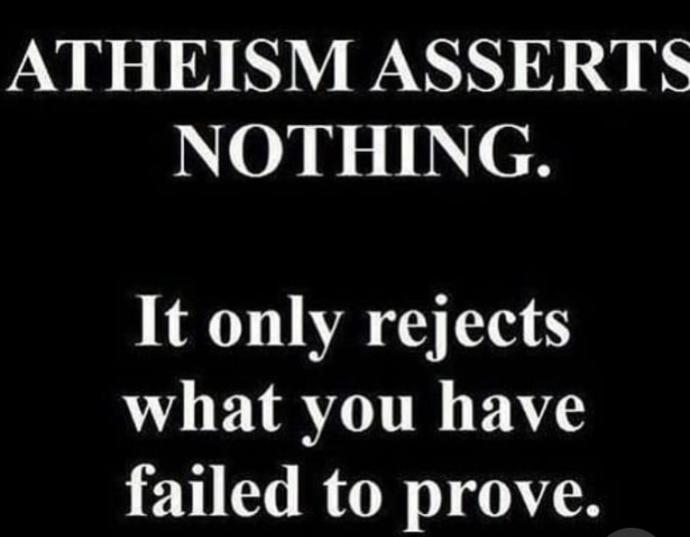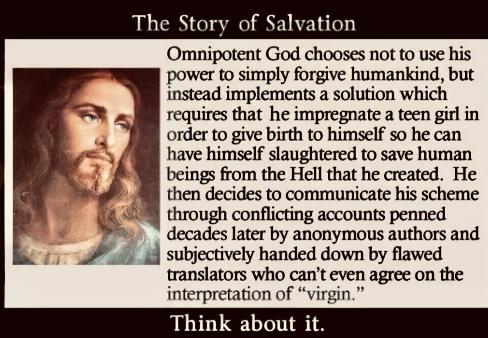I’ve been asked countless times “why do you criticize religion? Why don’t you just keep your opinions to yourself”? — Well, it’s true I do love a good debate especially with the religious on here, mainly perhaps because of their ‘certainty’ about their ‘beliefs’ — it’s turned into quite a hobby for me.
Well, there’s a few answers to that.
—————————————
•Nothing should be immune to criticism.
One of the biggest reasons that I criticize religion is the expectation that it shouldn’t be criticized. I find it absurd and unsettling that people would expect a set of ideas that have a significant impact on billions of lives to go unchecked.
Good ideas don’t need to be free from scrutiny, they’re good ideas precisely because they can be and have been critically examined.
To me, when a person claims that something should be above criticism, that implies two things. First, it’s probable that idea is not what the person claims it to be and second, the person making that claim very likely knows it.
I’m all for the marketplace of ideas. Ideas should be freely shared and freely criticized between all groups of people. It is a central and fundamental component to any meaningful progress. It is also, quite simply, unavoidable that while expressing ideas, we will, at times offend other people, and that’s okay.
Criticism fosters understanding and is a show of respect since you’re critically examining and considering another person’s viewpoint. Restraining an argument because you’re worried about offending someone is patronizing and very likely more offensive than the original argument itself, by restraining your criticism of another person’s idea you’re essentially saying that they aren’t grown up enough to understand that people sometimes disagree.
People deserve respect, ideas do not.
•Religion infects politics
I’ve said this before and I’ll say it again. I believe very strongly in protecting the rights of the minority from the whims of the majority. The majority of Americans fit under the broad umbrella of “Christianity” and many of them allow their religion to make moral pronouncements over them that they then try to legislate on to the minority of people that disagree.
I think that criticism of the foundation of these moral pronouncements and beliefs is of paramount importance. The fact is that the overwhelming majority of Christians have not even read the Bible and yet they support laws that will impact other people’s lives, based on this book that they’ve never read. It is, therefore, very important to expose as much of the nonsensical babble, immoral teachings and just overall sickening contents of the Bible as well as problematic concepts of religion as a whole.
t’s also important to remember that if a particular piece of legislation is religiously motivated and you support it, you’re helping to set a precedent for, and validating any religiously motivated legislation in the future, including those that are in direct opposition to your own religion.
•Religion makes absolute claims
Religious texts and leaders very frequently make absolute claims that stifle knowledge and retard scientific progress. One of the most prevalent examples in the US is young Earth creationists ignoring evidence that is incongruent with their belief in one of the several creation stories of the Bible. Because people are tribal by nature, we tend to go with whatever our specific group is saying at the time, perhaps this is why, in the 21st century, over 40% of Americans still believe that God created modern humans only 10 thousand years ago.
Religion also makes absolute moral claims or pronouncements that many people fervently follow. Many of these moral pronouncements have no modern function in civilized societies and all of the ones that do existed long before any religions laid claim to them such as murder, rape and theft being wrong. Too often, religion is used to justify immoral behavior and ideas in ways that no other concept could.
This is perhaps the biggest reason to criticize religion. All ideas should be met with skepticism and criticism, especially those that make absolute claims, disbelief in these kind of claims should always be the default position until that claim has held up to real scrutiny.





 Holidays
Holidays  Girl's Behavior
Girl's Behavior  Guy's Behavior
Guy's Behavior  Flirting
Flirting  Dating
Dating  Relationships
Relationships  Fashion & Beauty
Fashion & Beauty  Health & Fitness
Health & Fitness  Marriage & Weddings
Marriage & Weddings  Shopping & Gifts
Shopping & Gifts  Technology & Internet
Technology & Internet  Break Up & Divorce
Break Up & Divorce  Education & Career
Education & Career  Entertainment & Arts
Entertainment & Arts  Family & Friends
Family & Friends  Food & Beverage
Food & Beverage  Hobbies & Leisure
Hobbies & Leisure  Other
Other  Religion & Spirituality
Religion & Spirituality  Society & Politics
Society & Politics  Sports
Sports  Travel
Travel  Trending & News
Trending & News 

Most Helpful Opinions